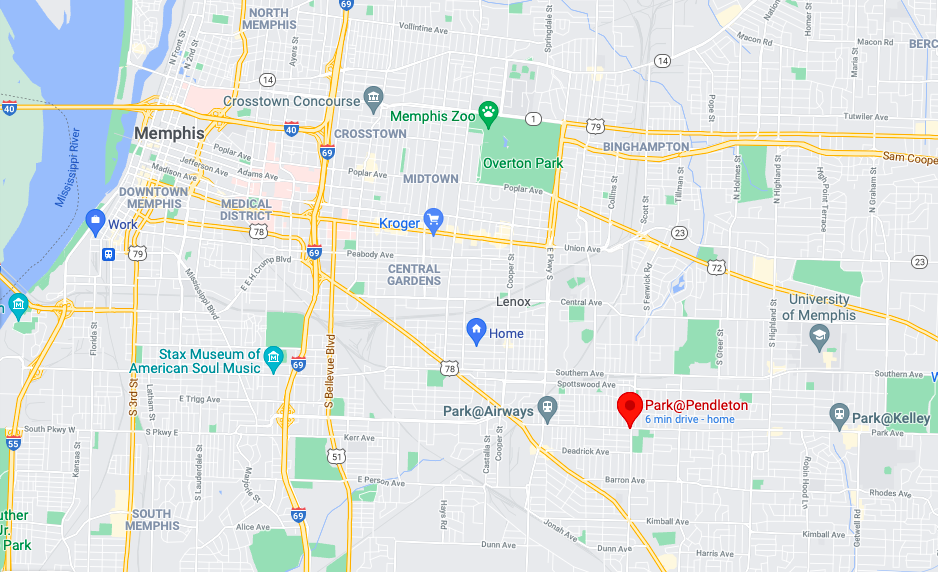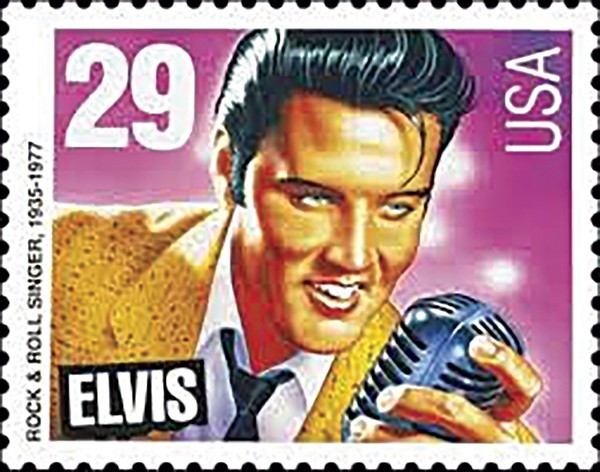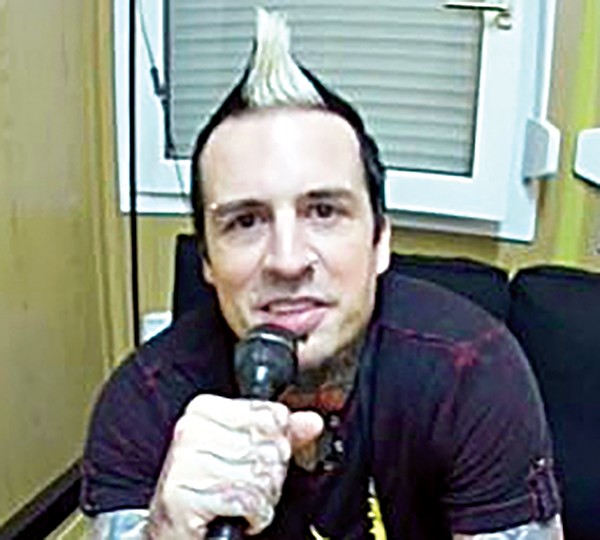Memphis Police Department (MPD) is supporting FBI and United State Postal Service (USPS) officials at a shooting in Orange Mound.
No more details are available. This story will be updated.

Memphis Police Department (MPD) is supporting FBI and United State Postal Service (USPS) officials at a shooting in Orange Mound.
No more details are available. This story will be updated.

“Man, I can’t believe it’s been six months …”
“Six months since what?
“Since everything?”
This mirrors a lot of conversations I’ve had recently.
I’ve been going on a fishing trip with old friends to the dark, deep woods of Western Pennsylvania every May since the 1990s. In April, we agreed we probably shouldn’t risk it this year, since it involves long drives from around the country for each of us, motel stays, and holing up together in a cabin for a week.
“Maybe, if this clears up soon, we could try again in July,” one friend said.
“I’d be down for that,” I said.
Oh, how naïve we were. I talked with my buddy again this week. We agreed we’d be down for next July. Maybe.
Will future historians really “get” what really happened in the United States during 2020? Will they understand how many of us lived like beach bums, even though we had jobs? Will they find out that millions of us haven’t worn socks or long pants or “work clothes,” for, well, at least five months and counting?
Historians probably won’t care much about things like that. Those details will be left to novelists and poets and essayists. Historians are more likely to focus on quantifiable information: the nearly 50 million unemployment claims (the most since the Great Depression); the untold thousands of COVID-19 deaths (latest predictions say 300,000 by December); the devastation of tens of thousands of the country’s small businesses; the absurdly fractious and incompetent American response to the pandemic.
Historians will marvel at how the “greatest nation on earth” bumbled and fumbled and politicized a deadly pandemic for most of a year (so far), while the rest of the civilized world figured out how to make it go away in a few months.
Historians will theorize and pontificate about what it was in the American psyche that caused us to become so polarized that the simple act of putting on a mask to protect ourselves and others became something to fight each other about.
Historians will chronicle how the pandemic transformed other aspects of society: how so many businesses discovered they didn’t need to pay high office rents in fancy buildings just so they could gather all their employees in cubicles and offices at one address, how so many Americans figured out that they didn’t have to go to jobs they hated; they could simply do something else or re-envision their businesses or careers — or lives — in fresh ways. Americans learned that they could live without watching sports. They learned that their children could thrive and still enjoy life without structured activities filling their days — and they learned that sometimes their dogs live better lives than they do.
Historians will point out how the pandemic most adversely affected the vulnerable among us: the elderly, the sick, people of color, the impoverished. They will note how the American education system — from kindergarten to college — fell apart and had to be reimagined, and how that too mostly affected the more vulnerable among us. They will note how little we did about it.
They will record how our Congressional and governmental leaders lacked the moral fortitude to challenge the obviously incompetent buffoon at the top, how they were too busy fighting for the special interests who own them and too busy diverting taxpayer money to corporations to notice the long lines at the food banks and shelters and testing centers, or their fellow citizens evicted from their homes, sleeping in cars and alleyways — the huddled masses they all pledged to serve. The dead.
Now we tumble headlong toward the most critical election of our lifetimes, with the certain knowledge that malign interests — foreign and domestic — are doing their damndest to disrupt and delegitimize it, and that the United States Postal Service is now just another cog in the toxic political machinery that has split this country into warring factions.
The United States won’t survive another four years of this chaos and disinformation and incompetence and fear. I want to hug my friends and family again. I want to sit at my favorite bar and swap stories and eat a cheeseburger. I want everyone to have a job and decent healthcare. I want a real Justice Department. I want a post office I don’t have to think about as friend or foe. I want to stop breaking off relationships over this faithless and nefarious fool in the White House.
And I wouldn’t mind going fishing in the dark, deep woods of Western Pennsylvania.
Neverending Elvis
This is such an honor. The U.S. Postal Service is honoring your Pesky Fly and the whole Fly on the Wall Team by issuing a Neverending Elvis stamp commemorating one of this column’s most enduring and best-loved features. Okay, okay, it’s technically an Elvis-themed “forever” stamp, but that’s almost the same thing, right?
The USPS will dedicate the new stamp on Wednesday, August 12th at Graceland during Elvis Week. Can we get a “Glory, glory Hallelujah?” Thankyavurrymush.

Hair Metal
Five Finger Death Punch drummer Jeremy Spencer told the Swedish music website “Access: Rock” why the metal band bailed on their gig at the Beale Street Music Festival after only six songs, leaving frontman Ivan Moody to jibber away onstage, alone. “There’s thousands of people there, and we’re trying to get these sound issues sorted out,” Spencer explained. “We kind of had a little bit of a fight in front of everyone, and we didn’t mean for that to happen.” One commenter helpfully suggested, in the future, the band might want to, “Spend more time before the show working out sound equipment issues instead of those stupid hairdos. Your call!”
